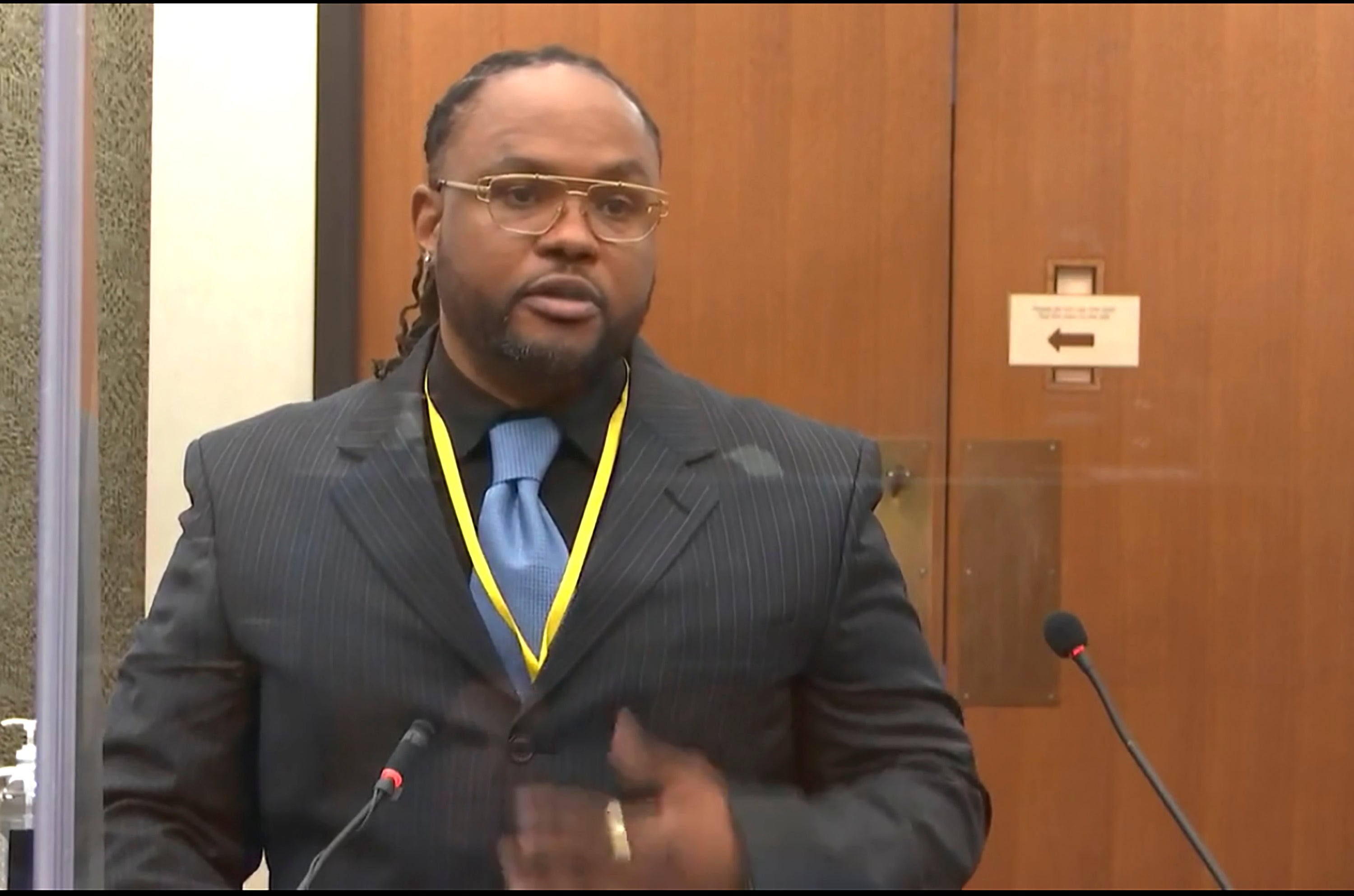EXPLAINER: Reluctant witness won't testify in Chauvin trial
A friend of George Floyd who was with him the night he died won’t testify at the trial of the former Minneapolis police officer charged in his death

Your support helps us to tell the story
From reproductive rights to climate change to Big Tech, The Independent is on the ground when the story is developing. Whether it's investigating the financials of Elon Musk's pro-Trump PAC or producing our latest documentary, 'The A Word', which shines a light on the American women fighting for reproductive rights, we know how important it is to parse out the facts from the messaging.
At such a critical moment in US history, we need reporters on the ground. Your donation allows us to keep sending journalists to speak to both sides of the story.
The Independent is trusted by Americans across the entire political spectrum. And unlike many other quality news outlets, we choose not to lock Americans out of our reporting and analysis with paywalls. We believe quality journalism should be available to everyone, paid for by those who can afford it.
Your support makes all the difference.A friend of George Floyd who was with him the night he died won't testify at the trial of the former Minneapolis police officer charged in his death, the judge overseeing the case ruled Wednesday.
Derek Chauvin's defense attorney wanted to call Morries Hall to testify in an effort to shift blame for the death to Floyd himself, for his use of illicit drugs and other health problems.
But Hall said Wednesday he would refuse to answer any questions, invoking his Fifth Amendment right against self-incrimination.
“I'm fearful of criminal charges going forward,” he told the judge.
His attorney, Adrienne Cousins, said there was no way Hall could answer even a narrowly tailored set of questions without risking exposure to third-degree murder and drug charges.
Hennepin County Judge Peter Cahill agreed. He said during earlier proceedings that he thought Hall might be able to answer limited questions about Floyd's behavior that night without incriminating himself. But he said he found Cousins' arguments persuasive and quashed the subpoena.
Here’s a look at Hall's significance in the case.
HOW WAS HALL TIED TO FLOYD?
Just before the fatal confrontation on May 25, video and other evidence presented in Chauvin’s case establishes that Hall was a passenger in an SUV parked outside Cup Foods with Floyd at the wheel.
After Floyd was removed from the SUV and handcuffed, officers questioned Hall and a woman who was also with them. The defense has said the officers weren’t able to fully question Hall at the scene because they were focused on arresting Floyd, but Hall did speak with investigators later.
WHAT WAS THE AIM OF THE DEFENSE?
It’s common at murder trials for defense attorneys to offer alternative theories about how victims died, and attorney Eric Nelson clearly thought Hall could help them raise reasonable doubt in the jurors' minds.
Nelson mentioned Hall in his opening statement as someone who could provide testimony to show that illegal drugs and underlying health conditions caused Floyd’s death. Defense filings said Hall told investigators he suspected Floyd was under the influence of drugs that day because he suddenly fell asleep in the driver’s seat before officers approached.
WHAT WAS THE POSITION OF PROSECUTORS ON HALL TESTIFYING?
Prosecutors refused to grant Hall immunity from future charges, which effectively blocked the defense from calling a witness who presumably wouldn't have helped their case. And they questioned the value of Hall testifying if he was going to invoke his right against self-incrimination to every substantive question.
What prosecutors didn't want was the defense asking Hall whether he gave Floyd drugs.
“The state doesn’t want Hall up on the stand with the defense having a field day asking questions he won’t answer, and jurors assuming he is not answering because the answer is ‘yes,‘” said Mike Brandt, a Minnesota defense attorney who has been closely following the trial.
WHAT DID HALL'S LAWYER SAY?
Cousins told Cahill that Hall couldn’t answer any of the defense’s proposed questions because he couldn't afford to place himself in the SUV that night and risk exposing himself to “constructive possession charges.” She pointed out that the vehicle was searched twice and that drugs were recovered both times.
The state also could potentially charge him with third-degree murder under a provision that applies for drug overdoses, she said.
“Let’s say Mr. Chauvin is then acquitted. He (Hall) has now given the state, on a silver platter, testimony to use against him in a third-degree murder charge,” Cousins said.
WAS HALL’S TESTIMONY THAT IMPORTANT?
Probably not. The jurors already knew Floyd had fentanyl and methamphetamine in his system when he died and that he had a history of drug use. But Nelson has rarely passed up chances to remind them.
Floyd’s girlfriend, Courteney Ross testified that she and Floyd struggled with addiction. She said she didn't like Hall and that she believed he had provided drugs to Floyd in the past.
___
Tarm reported from Chicago
___
Find AP’s full coverage of the death of George Floyd at: https://apnews.com/hub/death-of-george-floyd